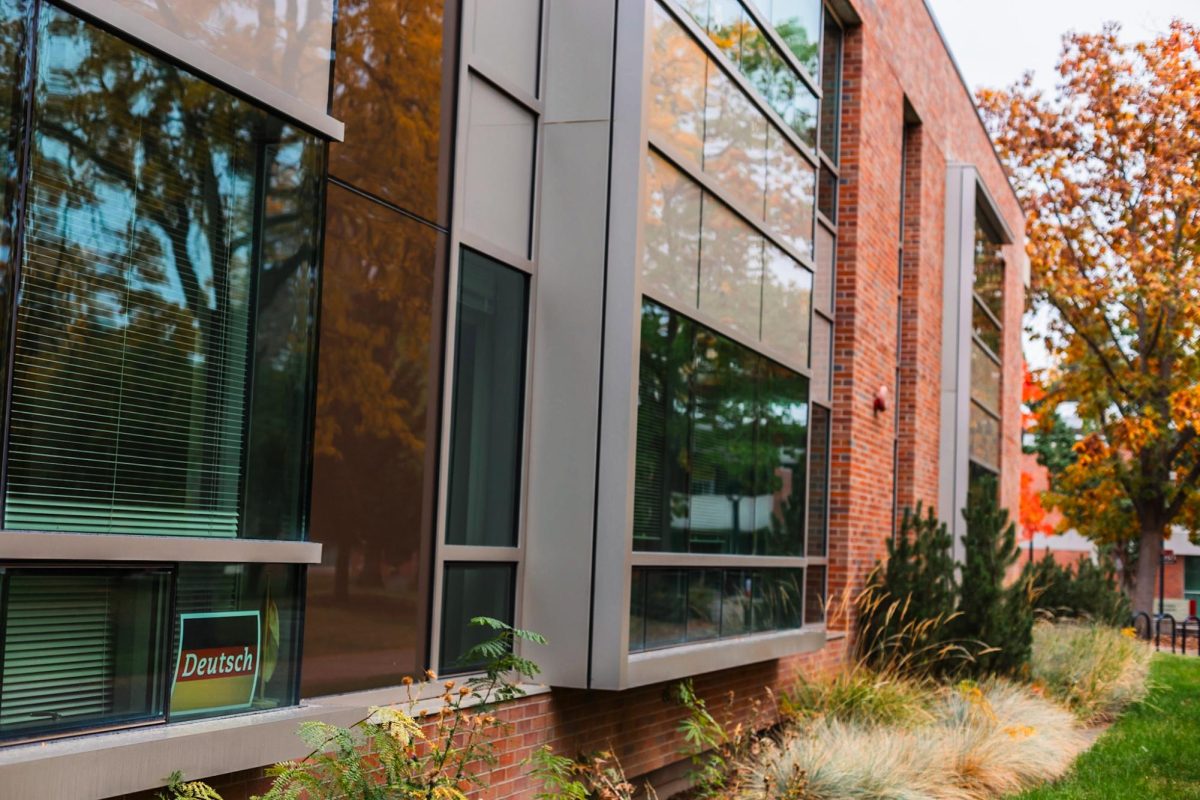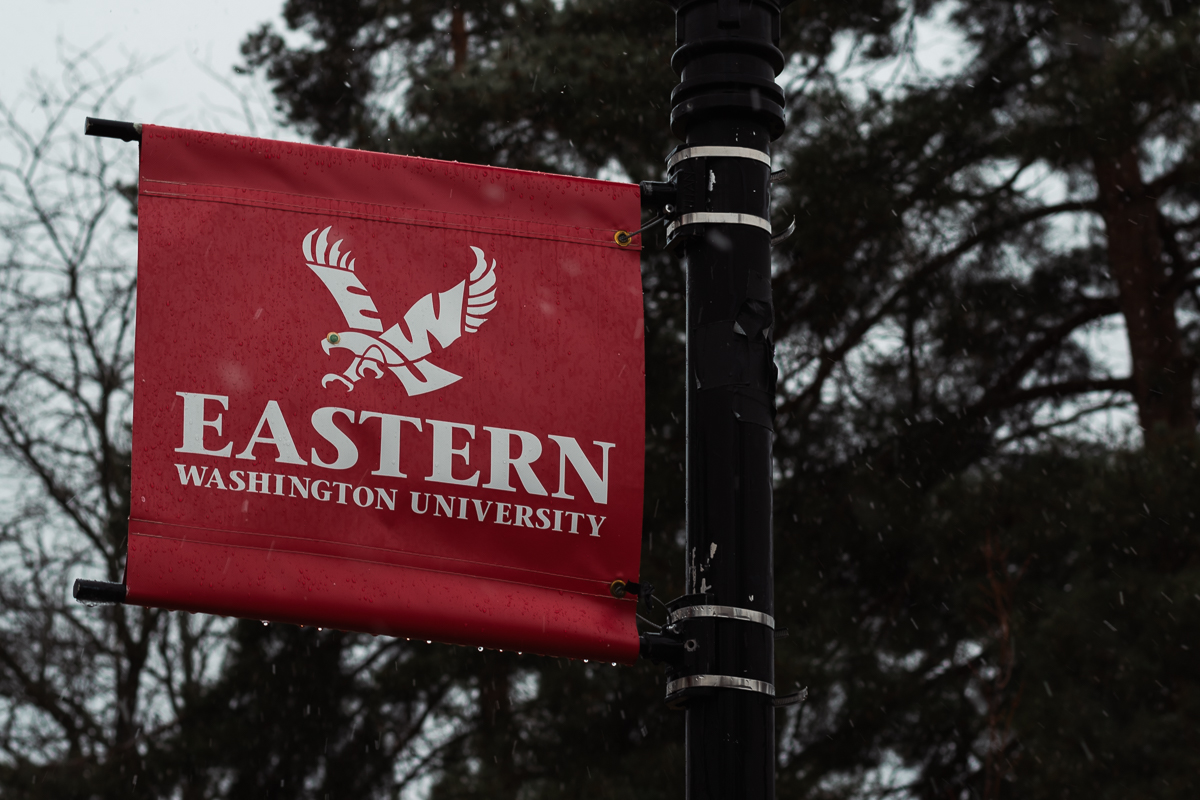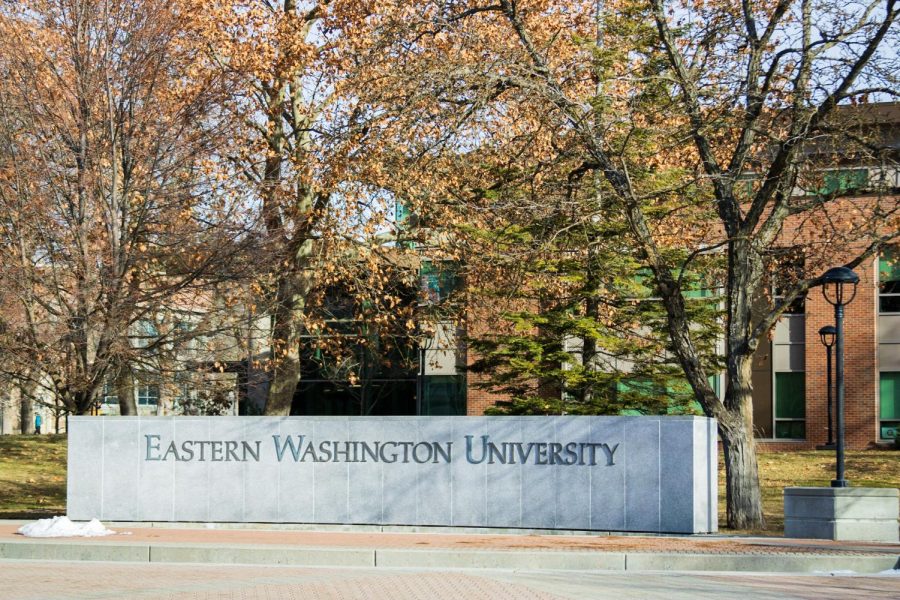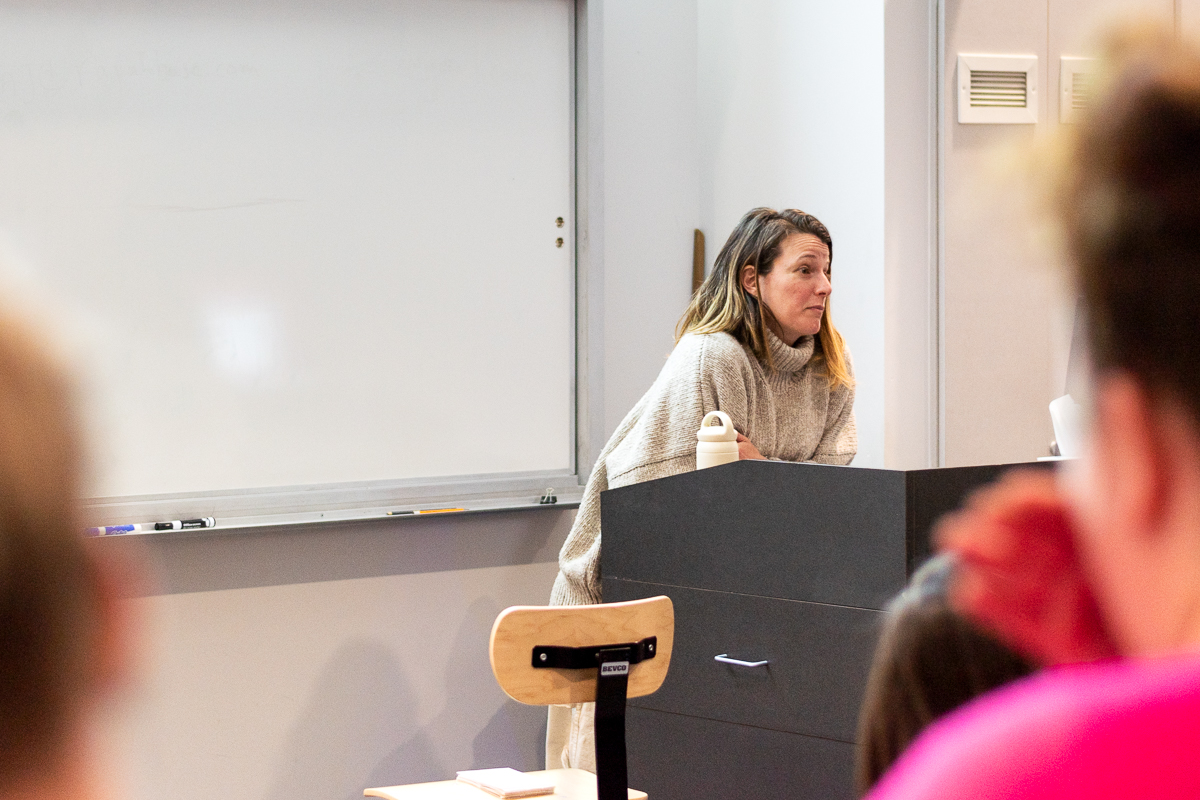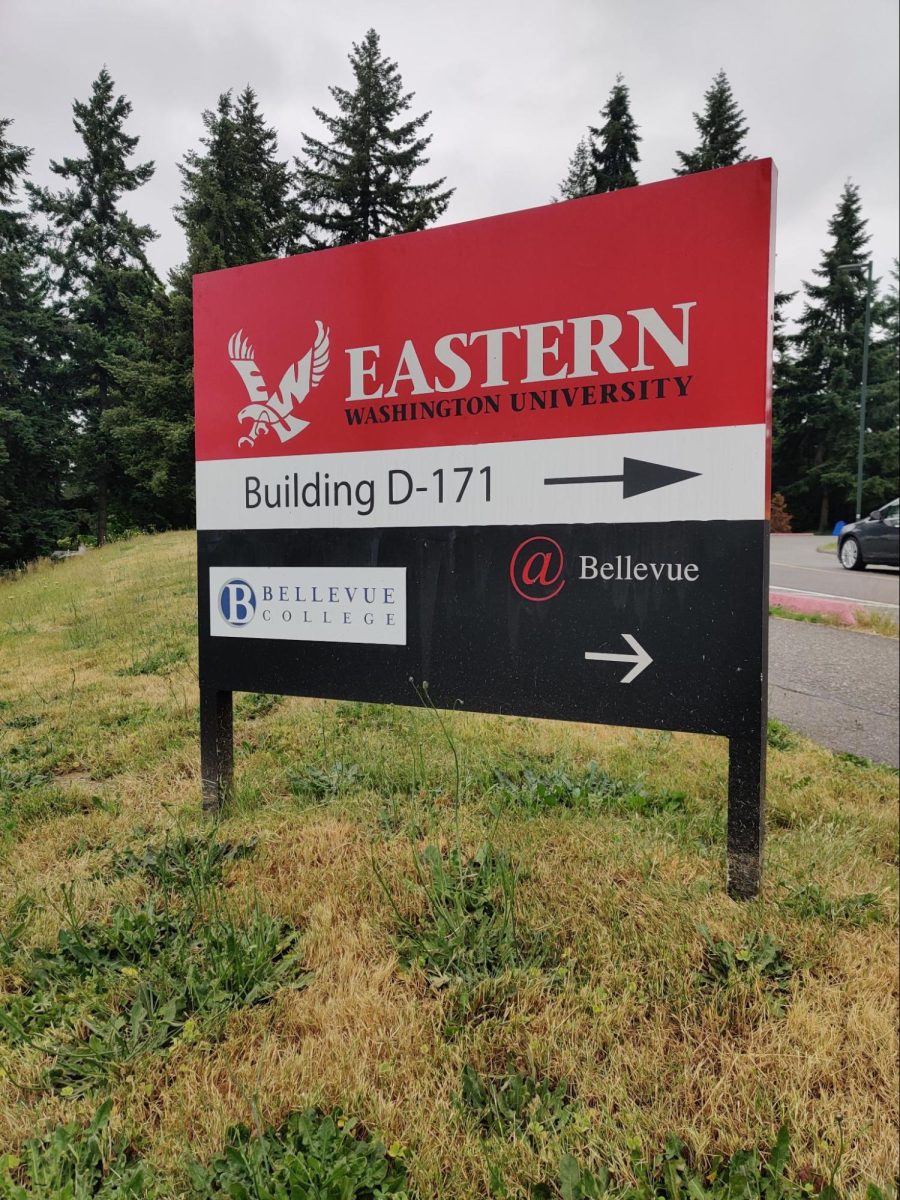As an institute of higher education, EWU is required by legislature to buy a percentage of all their goods and services from class II inmate work programs.
According to EWU purchasing manager Bill Santiago, Eastern mainly purchases logo and non-logo T-shirts from Correctional Industries in order to meet this mandate. Additional items besides T-shirts, such as towels, mattresses, office furniture and re-upholstery services, are also sometimes purchased from Correctional Industries.
The mandate, found under section 28B.10.102(4)(a) of the Revised Code of Washington, says: “Institutions of higher education shall set as a target to contract, beginning not later than June 30, 2008, to purchase 2 percent of the total goods and services required by the institutions each year produced or provided in whole or in part from class II inmate work programs operated by the department of corrections.”
The assistant director for Correctional Industries Danielle Armbruster said the class II inmate work program is voluntary and only for offenders who have been infraction free for six months, have a GED or high school diploma and apply for the position. They are paid a gratuity of 55 cents to a $1.65 an hour, and the department can take up to 80 percent of their gratuity to pay for cost of incarceration, legal fines, child support, crime victims and a mandatory savings account for when they are released.
Eastern has been purchasing products and services from Correctional Industries since 1999, according to Armbruster. During this time, “We’ve had a great relationship working with EWU,” she said.
Santiago also commented about there being a good working relationship with Correctional Industries and said, “At this point, any issues that have been brought to the attention of [Correctional Industries] has been resolved.
“As with any vendor, we constantly meet with them to ensure that quality, service and timely delivery result in the best value.”
“[Correctional Industries] is competitive in terms of product cost,” he added. “They have been working well with us. If there’s something cheaper, we bring it to their attention and they meet it.”
Another benefit for the university by purchasing products and services through Correctional Industries is that they offer free custom designs, along with most items being shipped for free to any destination within Washington state, according to Santiago.
Taxpayers are also seeing benefits when products and services are bought from Correctional Industries. “Part of the reason higher education purchases from [Correctional Industries] is to provide a cost savings to the respective institution and to contribute to the social justice aspect of our program,” said Armbruster. “For every dollar spent with [Correctional Industries], there is a $4.70 return to taxpayers in the reduction of recidivism and contributing to the cost of incarceration.”
According to the official Correctional Industries website, inmates also benefit from this arrangement as “these work opportunities provide the means for them to pay court-ordered financial obligations, victim restitution, a portion of the costs of incarceration, help support their families and build a mandatory savings account.
“With 97 percent of all incarcerated offenders returning to local communities, Correctional Industries plays an important role in their transition. With the seed money from their savings, job skills and experience gained from [Correctional Industries], the offenders have a greater chance of finding a job—enabling them to work toward a better life for themselves, their families and their communities.”
In addition, the website said that offender work programs help in managing a safe, efficient correctional system because it reduces idleness, decreases anxiety and gives offenders an opportunity to be productive.
The local Airway Heights Corrections Center for men provides T-shirts purchased from local vendors that can be screen-printed.
Embroidered T-shirts come from the Washington Corrections Center for women located in Gig Harbor, Wash. More products and services that Eastern purchases come from various other Washington corrections centers.
According to Santiago, if a department at Eastern has a need that Correctional Industries is unable to meet, then the Purchasing Department will work to obtain the goods or services from another vendor.






